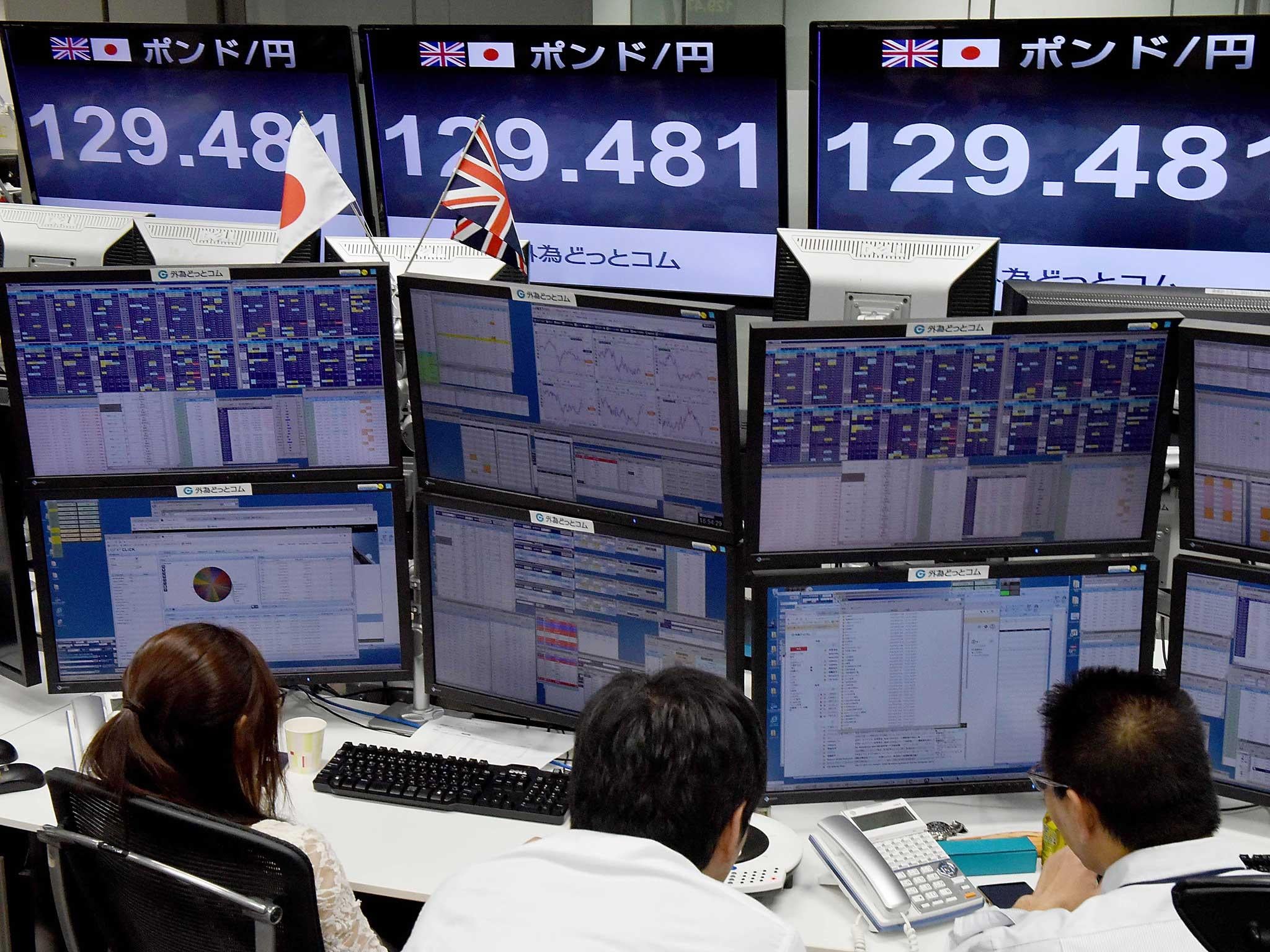Is the British pound the Mexican peso?
Amid rising fears that the UK will take a big economic hit from its move to leave the European Union, the correlation between the pound and an index of emerging-market currencies has jumped to levels last seen in the run-up to the Brexit vote.
“Investors are increasingly casting UK assets in an emerging-market light, amid a fundamental re-appraisal of the country's medium- to long-term economic fortunes,” Chris Scicluna, London-based strategist at Daiwa Capital Markets, said.
On Tuesday, the pound fell for a fourth day, tumbling 0.49 percent to below $1.23, bringing its year-to-date fall against the dollar to 17 per cent — the worst among 16 major peers.
“The pound is the purest expression of investors' fears about political risk in developed markets,” Nicholas Spiro, partner at London-based Lauressa Advisory, a London-based macro consultancy firm, wrote in a note to clients on Monday. “While the Mexican peso — the most liquid emerging market currency and the most reliable gauge of 'Trump risk' — has given sterling a run for its money this year, it's the pound that has become a proxy for politically-driven volatility in markets.”
While developed-country government bonds typically benefit from safe-haven buying during bouts of market nerves, the dynamic is now in reverse, with the pound and government bonds falling in tandem, and the UK 10-year note yielding 0.98 percent compared with 0.52 percent in mid-August. While global bond markets have sold off this month, amid expectations of tighter monetary policies, UK yields have outpaced rises in the US and euro-area countries.
The correlation between the pound and two-year gilt yields — which move inversely to prices — is at the lowest in a decade.
Gilt market underperformance, combined with the pound sell-off, suggests that UK markets aren't enjoying the benefits that accrue from the pound's reserve-currency status, says Jordan Rochester, FX strategist at Nomura Holdings Plc.
“Since reserve-currency countries enjoy investor confidence and there's a lack of a liquidity premium, FX markets look to buy government bonds when yields rise. But the sell-off in UK rates markets, leading to a weaker currency, is reminiscent of the dynamic in emerging-market countries,” he says.
An “upward shift in inflation expectations,” driven by the falling pound, combined with “big long-term fiscal questions” posed by the UK's future outside the EU, justify the synchronized sell-off in currency and rates markets, says Daiwa's Scicluna.
Given rising price pressures and jittery foreign-investor sentiment amid a current-account deficit that widened to a two-and-a-half-year high in the second-quarter at 5.9 percent of GDP, the Bank of England's limited room to cut rates this year “is another indication of the UK's emerging-market style” macroeconomic challenges, Scicluna concludes.
“The pound used to be a relatively simple currency that used to trade on cyclical events and data, but now it has become a political and structural currency,” wrote David Bloom, strategist at HSBC Holdings Plc in a note on Friday. “The currency is now the de facto official opposition to the government’s policies.”
Bloomberg
Subscribe to Independent Premium to bookmark this article
Want to bookmark your favourite articles and stories to read or reference later? Start your Independent Premium subscription today.


Join our commenting forum
Join thought-provoking conversations, follow other Independent readers and see their replies